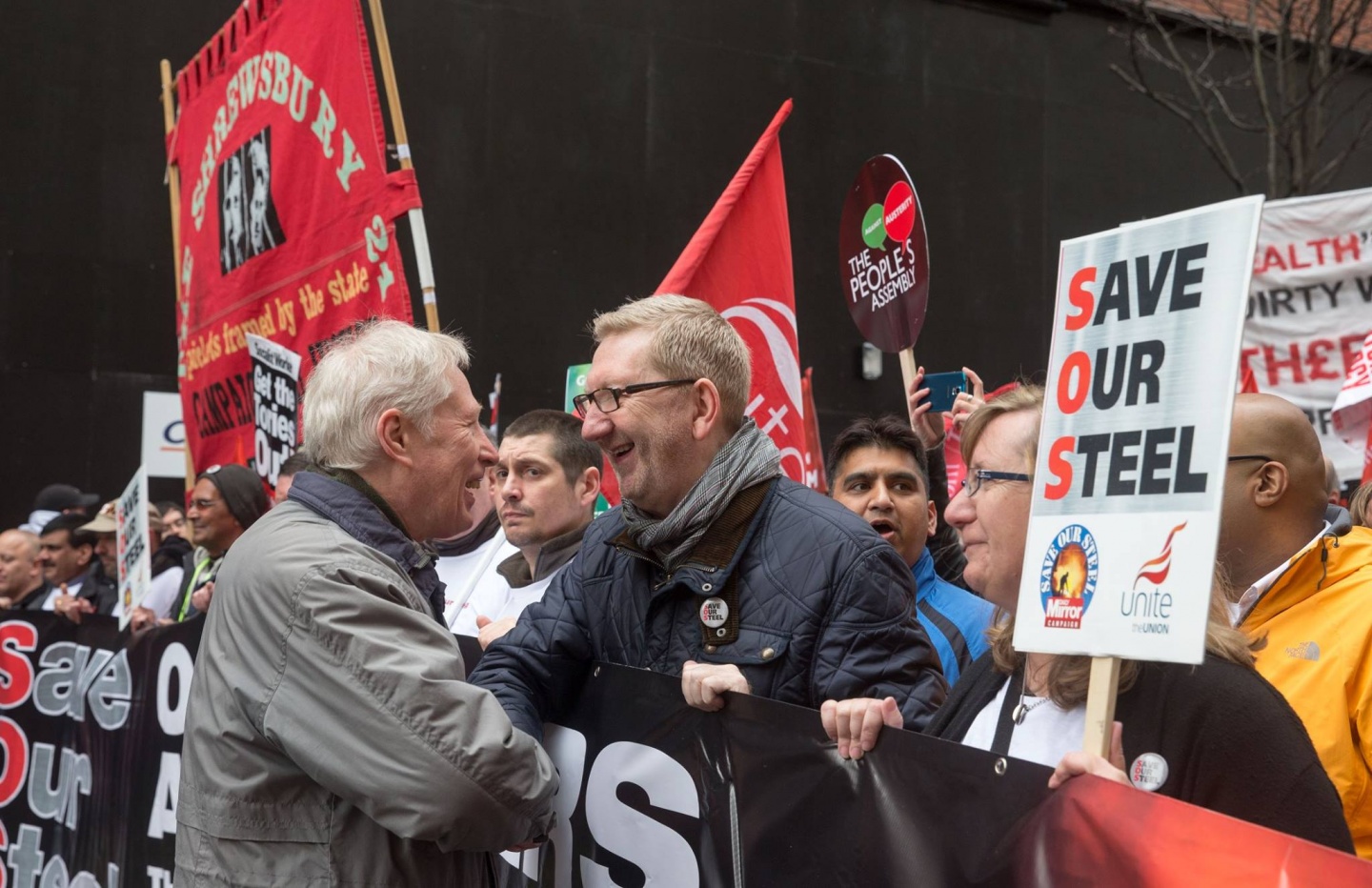21 April, 2016IndustriALL participated in a high level OECD meeting held in Brussels to address the crisis in the steel industry.
The meeting was convened on 18 April 2016 to discuss global strategies to deal with excess capacity and structural adjustment. Representatives of governments, steel producers, workers and affected communities were present.
IndustriALL was represented by Holly Hart of the United Steelworkers. She expressed how the steel crisis has caused a wave of industrial destruction that is wiping out good jobs on a global scale, and systematically eroding workers' rights and working conditions.
The nature of the crisis is that there is excess capacity – too much steel is being produced. This means that the price of steel has dropped by 20%, to a point where it is difficult to make it profitably. Many jobs are being lost as a result.
Demand is weak due to the economic slowdown, and production is increasing because China is producing steel at below cost as a tactic to drive other steel producers out of business.
China's production is driven by state-owned and controlled enterprises, in violation of its WTO obligations, ILO core labour standards, environmental standards and fundamental human rights.
The steel crisis is a short term one, but urgent action is needed now, before the crisis destroys the industry. Steel is the world's second largest industry, used in everything from cars to fridges and construction. Global steel use is projected to increase by 50% by 2050. Steel is vital for maintaining a high value supply chain with good jobs.
Governments need to develop long term industrial strategies with a place for steel. This includes massive investment in infrastructure and training. Governments must also make targeted interventions to rescue steelmaking communities threatened with extinction by plant shutdowns.
Governments and global institutions must consider the climate consequences of shutting down steel plants that meet strict environmental and quality standards, while allowing unfettered growth where such standards are ignored.
Fernando Lopes, IndustriALL assistant general secretary said,
“The steel industry is absolutely fundamental to the economic health of many communities, and provides vital, quality jobs to many thousands of people, both directly and across supply chains.
“It is essential to develop an industrial strategy to protect this industry from unfair competition. Governments need to urgently and proactively address this crisis before the industry is destroyed, and we lose thousands of good jobs forever.”







